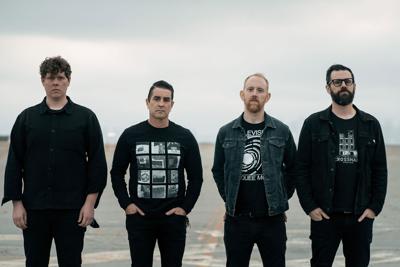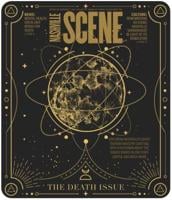
Kowloon Walled City
Band names don’t get more apropos than that of Kowloon Walled City. If the Oakland, Calif., quartet’s namesake is not familiar to you, claustrophobia is likely to set in merely looking at photos of the place: a self-governing vertical tenement that housed hundreds of thousands of Hong Kong denizens between 1898 and its demolition in 1994. The same could be said about the band’s music.
Between 2012’s masterclass in tension-and-release Container Ships, its immersive 2016 follow-up Grievances and the group’s stark, punishing 2021 LP Piecework, singer-guitarist-engineer Scott Evans, guitarist Jon Howell, bassist Ian Miller and drummer Dan Sneddon prove the value of having a local to show you around. There’s an authenticity, a humanity and an unusual warmth to KWC’s catalog rarely heard in bands of this ilk. You’ll hear it in the band’s attention to melody and negative space, as well as their minimal use of effects. Ahead of Thursday’s Drkmttr gig — which they’ll co-headline with wide-ranging Louisville outfit Jaye Jayle and Nashville prog-punk greats Shell of a Shell — the Scene caught up with Evans via email. Followers of Nashville heavy music may also recognize his name from the liner notes of Yautja’s 2021 instant classic The Lurch, which Evans produced at Chicago’s legendary Electrical Audio.
Was Piecework written and recorded during quarantine, or did you wrap it before everything went sideways?
Kind of both. We recorded it in summer ’18, but I was gridlocked on lyrics. I was really in a hole. Eventually I got it together and we wrote and recorded in ’21. What a mess.
What were the first and last songs written?
The first was “When We Fall Through the Floor.” There was a PJ Harvey vibe to the guitars that we ended up walking back. The last was “Lampblack,” which seems to be a [consensus] favorite. Every song was hard to get out. We’ve been doing this band long enough that we’re out of lightning-in-a-bottle ideas.
How have the group’s intentions — lyrically, sonically, ideologically — grown and evolved over time?
On day one, I had three bands I wanted to pull from: Godflesh, Shallow North Dakota and Unsane. Unadorned, repetitive [and] fucking mean. When [Howell] joined and we wrote Container Ships, something changed. Less feedback, more space, better lyrics. We stumbled onto what we wanted this band to be, and that’s the path we’ve been on since.
Tell me about your studio, Antisleep Audio. Is most of the production work you do out of there?
It’s my little studio in Oakland. Two small rooms, a mix room and a live room. Been there 10 years, made a ton of records there. It’s great. I mix everything I work on there, but it’s too small for full bands or big drum sounds so I [also] do a lot of recording at Sharkbite Studios, which is down the hall. That’s where we’ve done the last few KWC records.
Are there things your experiences in KWC taught you that have carried over into your production work, or vice versa?
Less is more. If you want great-sounding guitars, don’t fill up the arrangement with other shit. Want great-sounding drums? Leave space in the other sounds and parts. It’s so easy to pile on ideas now, but hard to ensure these ideas are additive.
Was going to Electrical to track Yautja a special occasion? Tell me a bit about y’all’s relationship.
Going to any out-of-town studio is always special — Electrical especially, because the staff is so great and it has an incredible history. And then Yautja — man, they are just one of the best bands doing it. I’ve known them for a long time and been a huge fan. For years I had hoped I might get to record them. So yeah, for me that session was a big deal. I hope we did them justice. The Lurch was recorded pretty much live from the floor. We doubled the guitars and overdubbed vocals, but what you’re hearing is a great band just destroying.





